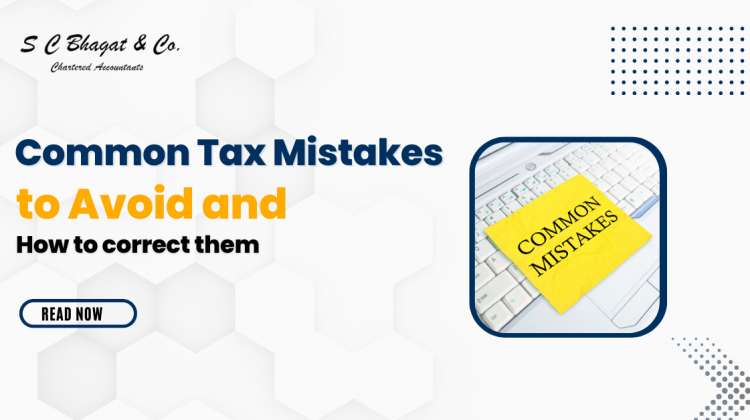Introduction
Taxes are an inevitable part of life, and navigating through the intricate tax landscape can be challenging. Many individuals, in their attempt to fulfill their tax obligations, inadvertently make common mistakes that can have serious consequences. In this article, we will delve into these mistakes, providing insights on how to avoid them and offering corrective measures.
Not Keeping Proper Records
One of the fundamental aspects of responsible tax management is maintaining accurate records. Failing to keep proper records can lead to miscalculations, overlooked deductions, and even legal consequences. The Internal Revenue Service (IRS) places a significant emphasis on the importance of meticulous record-keeping.
To correct this, individuals should implement robust record-keeping systems. Utilizing digital tools, such as accounting software, can streamline this process, making it easier to track income, expenses, and supporting documentation.
Misclassification of Income
The diverse sources of income, including wages, dividends, and rental income, often lead to confusion. Misclassifying income can result in inaccurate tax reporting and potential audits. To rectify this, individuals should familiarize themselves with the different types of income and seek professional advice if uncertain.
Overlooking Deductions and Credits
Every year, taxpayers miss out on valuable deductions and credits simply because they are unaware of them. From education expenses to energy-efficient home improvements, the list is extensive. Correcting this mistake involves staying informed about available deductions and credits, leveraging reputable tax resources, and consulting with tax professionals.
Ignoring Changes in Tax Laws
Tax laws are dynamic and subject to change. Ignoring these changes can lead to non-compliance and financial consequences. To correct this, individuals must stay informed about updates to tax laws. Utilizing online resources, subscribing to newsletters, and consulting with tax professionals are effective ways to stay abreast of changes.
Late Filing and Payment
Procrastination in filing tax returns and making payments can result in penalties and interest charges. Correcting this mistake involves adopting disciplined financial habits, setting reminders, and utilizing online tools to facilitate timely filing and payment.
Neglecting Retirement Contributions
Contributing to retirement accounts not only secures future financial well-being but also provides immediate tax benefits. Failing to maximize contributions can result in missed opportunities. Individuals can correct this mistake by reviewing and adjusting their retirement savings strategies, taking advantage of catch-up contributions, and seeking professional guidance.
Failure to Report Cryptocurrency Transactions
As the popularity of cryptocurrencies grows, the IRS has intensified its focus on reporting these transactions. Failing to report cryptocurrency transactions can lead to audits and penalties. Correcting this mistake involves amending previous returns to include accurate information and staying informed about evolving cryptocurrency tax regulations.
Excessive Dependence on Tax Software
While tax software is a valuable tool, relying solely on it can lead to oversights and errors. Correcting this involves balancing the use of tax software with seeking professional advice. A second set of human eyes can catch nuances that software might overlook.
Incomplete or Inaccurate Information
Submitting tax returns with incomplete or inaccurate information can trigger audits and delays in processing. Correcting this involves thorough review and verification of all information before submission. Double-checking calculations and ensuring all required forms are included is crucial.
Not Seeking Professional Help
Many individuals attempt to navigate the complex tax landscape without seeking professional guidance. This can result in missed opportunities for deductions and credits, as well as increased audit risk. Correcting this involves recognizing when professional help is necessary, especially in complex financial situations.
Ignoring State and Local Taxes
While federal taxes garner much attention, neglecting state and local tax obligations can lead to legal repercussions. Correcting this mistake involves understanding and fulfilling all state and local tax obligations. Seeking advice from local tax professionals can provide valuable insights.
Failing to Plan for Tax Consequences
Proactive tax planning can minimize liabilities and optimize financial strategies. Failing to plan for tax consequences is a common mistake that can lead to missed opportunities. Correcting this involves consulting with tax professionals to develop personalized tax strategies and staying proactive in financial planning.
Handling Audits Incorrectly
Facing an audit can be daunting, but handling it incorrectly can exacerbate the situation. Individuals should be aware of their rights during an audit and seek professional representation if needed. Correcting this mistake involves understanding the audit process and responding appropriately to IRS inquiries.
Conclusion
In conclusion, avoiding common tax mistakes requires diligence, knowledge, and proactive financial planning. By addressing these issues head-on and implementing corrective measures, individuals can navigate the tax landscape with confidence. Staying informed, seeking professional advice, and adopting responsible financial habits are key to ensuring a smooth tax-filing experience.

